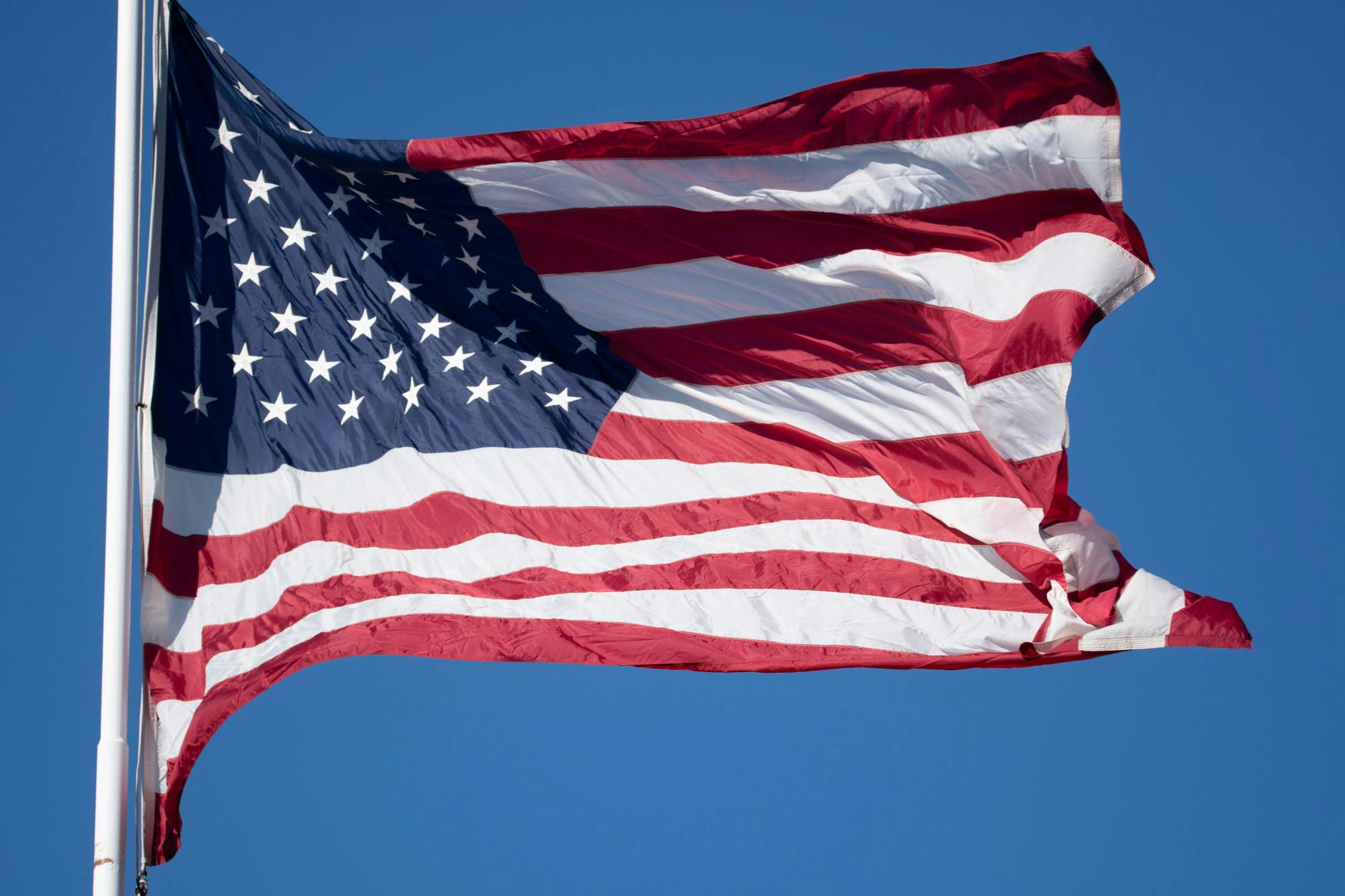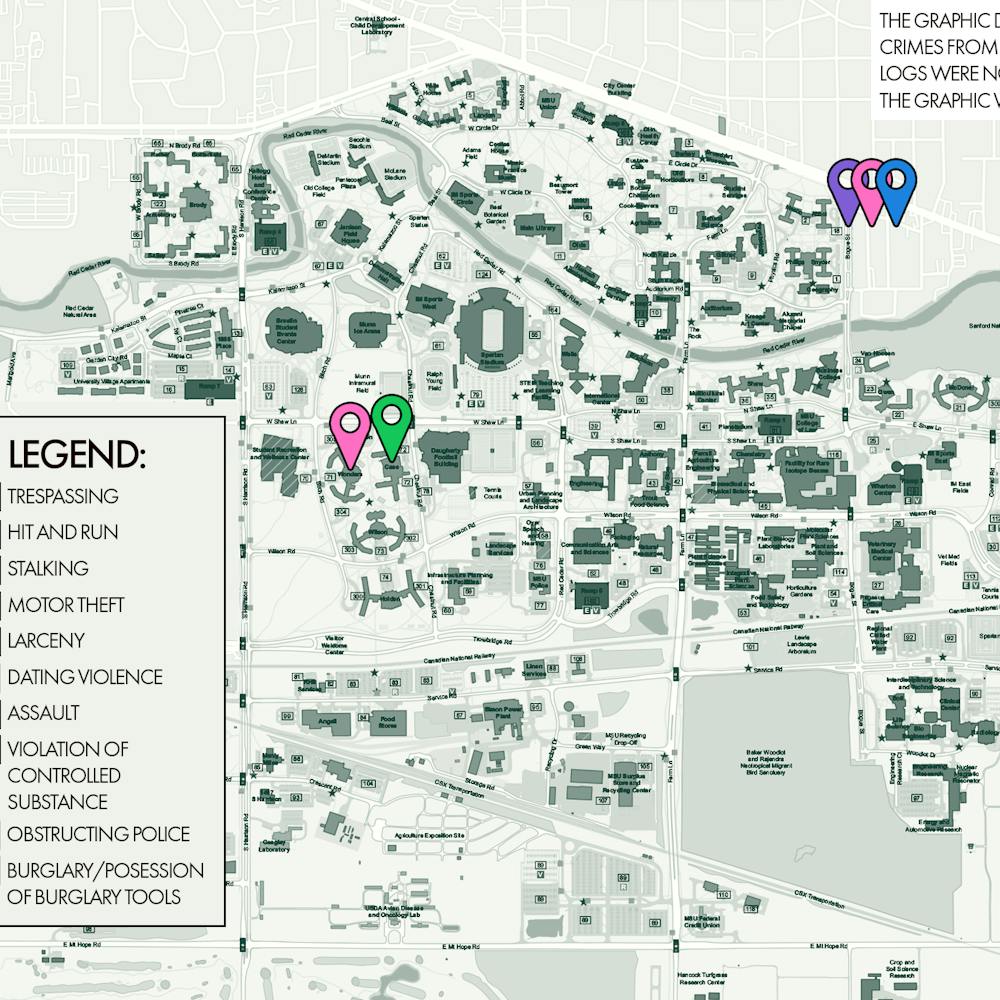Established on June 14, 1777, the American flag stood to represent the new nation with its 13 alternating red and white stripes along with its 13 white stars on a blue field.
Today, the 13 stripes represent the original 13 colonies, and the stars represent the 50 states of the nation. The red symbolizes hardiness and valor, white purity and innocence and blue vigilance, perseverance and justice, according to PBS.
Although the flag’s intention is clear, to represent the nation, its meaning has come to change as years have gone by since it’s creation.
Social relations and policy junior Hannah Niskar had an American flag sweater when she was younger, which she donned on the Fourth of July. To her, the holiday itself embodies patriotism for our country but can also be misperceived as nationalism.
As for what the American flag represents, Niskar believes it embodies the current government we have today as well as the past and future government, how far we have gotten in terms of progress within our nation and how far we need to go in terms of growth.
“It also embodies the ideals of the American people, so hopefully as time goes on, with progress, those ideals match the American people,” Niskar said.
According to Niskar, the American flag shows opportunity for the American people and the continuation of progress.
Social relations and policy junior Troy Distelrath has had a complicated relationship with the flag lately. This is due to the fact that he believes it has come to serve as a partisan wallpaper for whoever is controlling the White House or Congress at a given time.
“I have an unconditional love for the country, but the last several years in particular it almost seems as though the flag has been used as a suppressive tool to quiet down people that would dispense against the current government,” Distelrath said.
Unlike the ones he holds now, his first memories with the flag were very nostalgic childhood ones. Growing up, he has always had a strong love for the Fourth of July as he watched fireworks with his cousins, and there were always American flags around the pool, and people had on American flag bathing suits.
“My kind of view is that you can love the flag no matter how critical of the country you are,” Distelrath said. “To paraphrase Obama, I think that people that are critical of the flag while still loving the country, just understand that America is strong enough to be self-critical.”
Political science sophomore Ryland Bennett said he believes the flag is more than just an embodiment of our country, it signifies freedom, liberty and all the beautiful things the U.S. has.
Although he understands that the flag has been controversial in recent years, to him, the flag shouldn’t be a controversy. Instead, it should be something we look to with respect due to people having died and fought for it.
“People fought for that liberty under that flag, and my grandfather fought for liberty under that flag,” Bennett said.
Since Bennett grew up in metro Washington D.C., he recalls how important the anniversary of 9/11 was there. He remembers standing out there with all the American flags waving, watching the fireworks, the cannon fire in honor of those who lost their lives.
To him, this was such a unifying, patriotic moment, one that he will never forget.
“At the end of the day it’s still the cloth, and the stars, the stripes that embody us and embody everything we stand for and everything we continue to fight for,” Bennett said. “So, whether or not America is a perfect place, the flag still represents what we are and what we want to be.”
International relations senior Anthony Nwagwu, thinks that the American flag represents a commitment between the people of this country and the government. This commitment highlights that the interests of the people whom their representatives serve in government.
His first memory of the American flag was from kindergarten where he was taught the Pledge of Allegiance.
Nwagwu believes that as time has gone on, the flag has grown in significant meaning. Before it was associated more with the military and their service for this country, especially when looking at situations like the National Football League where Colin Kaepernick would kneel down during the national anthem seen as disrespectful to the military that served for that flag.
Support student media!
Please consider donating to The State News and help fund the future of journalism.
“I think this (last) year specifically has seen a different approach to the flag in a sense where it’s not so much we the people serve the flag but the flag is supposed to serve the people,” Nwagwu said. “The flag is a representation that the people are guaranteed certain inalienable rights and opportunities to shape America the way we want to see it.”
Discussion
Share and discuss “MSU students reflect on the meaning the American flag holds for them” on social media.







